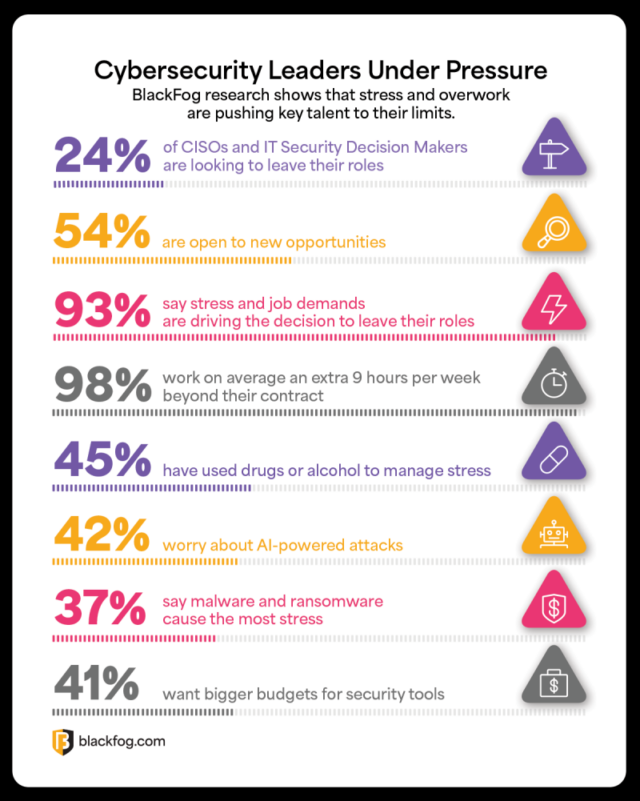A quarter of cybersecurity leaders are ready to quit

A new survey finds that 24 percent of CISOs or IT security decision makers (ITS DMs) are actively looking to leave their position.
The research, commissioned by BlackFog, finds that a further 54 percent, while not actively looking to quit, are open to new opportunities.
The survey of 400 ITS DMs -- 200 in the US and 200 in the UK -- in enterprises of over 500 employees finds that of those considering leaving 93 percent say that the stress and demands of the job are impacting their decision to leave.
Nearly every respondent (98 percent) reports that they work more than their contracted hours. On average, they are clocking up an extra nine hours -- the equivalent of more than one working day -- every week, with 15 percent of all respondents typically working more than 16 hours over their contracted time each week.
"These findings validate the turnover we witness in the market every day, compounded by the lack of resources and tools to combat new AI based threats," says Dr Darren Williams, CEO and founder of BlackFog. "The cost and time involved in replacing senior level security leaders is considerable so it's absolutely essential that organizations address the root cause of stress to reverse the cycle of churn."
The study also finds that 37 percent say that malware and ransomware attacks are the biggest source of stress. As the ransomware attack landscape continues to evolve, 42 percent of respondents also state they're most worried about attackers using AI to launch their assaults whilst data exfiltration, a tactic increasingly used by ransomware attackers, is cited as the top concern by a quarter of respondents.
When asked about how they manage their stress, 86 percent of participants say they allocate time for sport and recognize physical health as important to their overall well being, while 75 percent say they get enough sleep. 82 percent believe that they set clear boundaries between their work and private time. However, in the past 12 months 45 percent say they have at some point used drugs or alcohol to alleviate work pressures and 69 percent have withdrawn from social activities.
The majority of respondents feel that their organization could do more to make them feel supported in their role. This ranges from increasing their budget so they can afford the security tools they need (41 percent) to having more time to focus on the problems that matter (40 percent).
There's an infographic summary of the findings below.

Image credit: stevanovicigor/depositphotos.com
